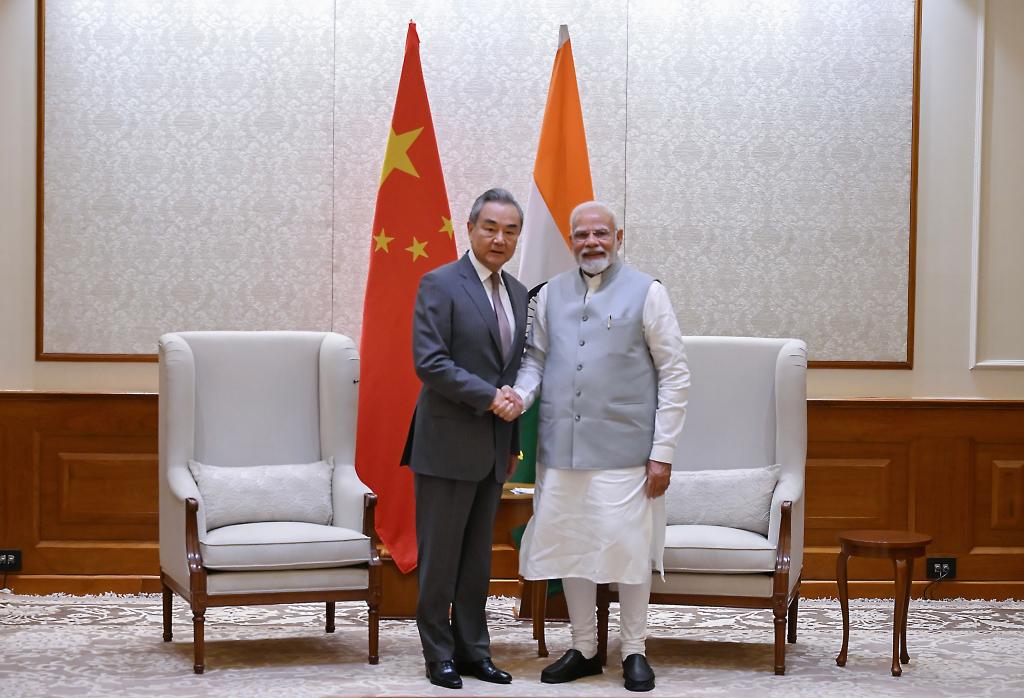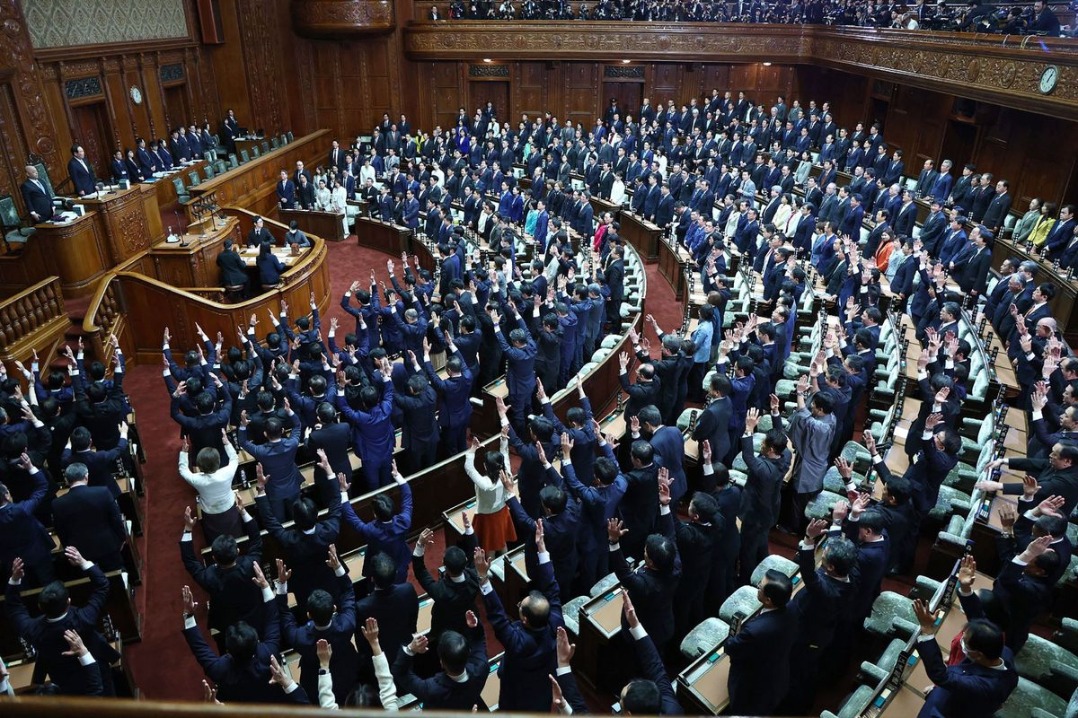Indian PM meets Chinese FM on ties


NEW DELHI -- Indian Prime Minister Narendra Modi met here on Tuesday with visiting Chinese Foreign Minister Wang Yi, who is also a member of the Political Bureau of the Communist Party of China Central Committee and director of the Office of the Central Commission for Foreign Affairs.
Modi said that both India and China are ancient civilizations, and they have enjoyed a long history of friendly exchanges, and the Kazan meeting between leaders of the two countries last October turned out to be a turning point for the improvement and development of bilateral ties.
He stressed that India and China are partners, not rivals, and are sharing the same goal of achieving faster growths, and should increase exchanges, promote mutual understanding and expand cooperation, saying that huge potentials and bright future of bilateral cooperation could be perceived by the whole world.
The two sides should properly manage and settle boundary issues, so that differences will not evolve into conflict, he said.
He said that this year is the 75th anniversary of the establishment of diplomatic ties between India and China, and the two countries should approach bilateral ties from a long-term perspective, and the emerging of the Asian century is closely associated with India-China cooperation, and it is imperative for the two countries to work together for world development and wellbeing of mankind.
He also said that he is looking forward to attending the Shanghai Cooperation Organization Tianjin summit.
Wang welcomed Modi's attendance at the upcoming summit, saying that leaders of both countries reached important consensus during the Kazan meeting, and the two countries have implemented the consensus to enable bilateral ties to enter a new course of improvement and development.
Calling his visit to India a preparation for high-level exchanges between the two countries, Wang said during the visit, China and India have reached consensus on restarting dialogue mechanisms in various fields, deepening mutually beneficial cooperation, upholding multilateralism, jointly addressing global challenges, and opposing unilateral bullying.
Regarding the boundary question, the two sides reached new consensus on conducting regular management and control, maintaining peace and tranquility in border areas, appropriately handling sensitive points, and initiating boundary negotiations in areas where conditions are met, he said.
Wang said that bilateral ties have experienced ups and downs, and lessons could be learned from the past. No matter what happens, both sides should maintain correct perceptions of being partners, not rivals, adhere to the principle of properly managing differences to ensure that boundary disputes do not affect the overall situation of bilateral relations.
Under the current international situation, strategic significance of China-India relations is increasingly prominent, and strategic value of China-India cooperation is more meaningful, he said, adding that the two sides will earnestly implement the consensus reached by leaders of the two countries, strengthen exchanges and cooperation in various fields, promote the stable and long-term development of China-India relations so as to better benefit the peoples of both countries.
































